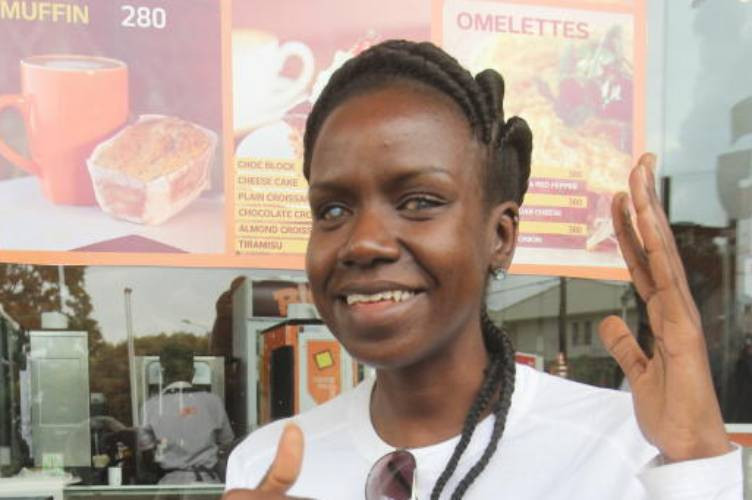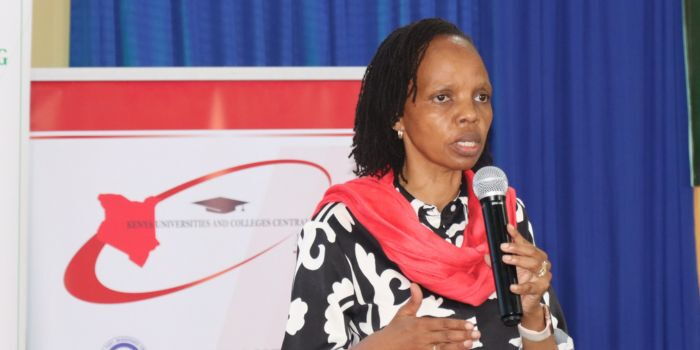NEEM, GSF canvass reparative education for conflict affected women, girls
Education, experts say, helps women and girls heal from sexual violence. The Neem Foundation and Global Survivors Fund’s trauma-responsive model supported by the Ministry of Education, empowers survivors towards a better future.
More than 15 years after the start of Boko Haram’s insurgency and its brutal attacks on education, Nigeria still bears deep scars especially among children, girls, and women. But amid the trauma, hope is taking root. Education is emerging not just as a basic right but as a powerful form of reparation for survivors of conflict-related sexual violence and their children.
This was the focus of a recent Policy Dialogue held in Abuja, jointly organised by the Neem Foundation and the Global Survivors Fund (GSF), with the theme: “Education as a Form of Reparation: Breaking the Silence, Building the Future.”
The dialogue was centered on the path towards healing and empowerment, for the survivors of the Boko haram insurgency particularly in the northern region. It was shared that approximately 8.9 million crisis-affected girls and boys remain unable to access basic primary school education. For those caught in this conflict-related sexual violence, the challenges are further exacerbated.
Boko Haram’s campaign systematically targeted educational institutions, abducting hundreds of young schoolgirls, subjecting them to rape, forced marriages, forced pregnancies, and sexual slavery.
These experiences often lead to profound stigmatisation, fear, depression, and severe physical consequences such as obstetric fistula and unwanted pregnancies. Dropping out of school becomes the norm, trapping victims in a cycle of poverty and vulnerability. For children born of conflict-related sexual violence, the stigma extends to outright community exclusion, pushing them towards further exploitation or recruitment by armed groups.
It is against this backdrop of widespread suffering and educational deprivation that the Neem Foundation and the Global Survivors Fund initiated a collaborative six-year programme in Maiduguri in February 2024. Building on Neem’s established comprehensive education programme from 2018, this initiative delivers trauma-responsive education to children aged eight to 14, many of whom were abducted, abused, witnessed extreme violence, or were born as a result of sexual violence.
This is to enable justice and social reintegration, meticulously designed to create safe spaces where children can heal, regain confidence, and reclaim a future violently stolen from them.
Speaking on this model, the Executive Director of the Neem Foundation Dr. Fatima Akilu, stated the importance of education transition from traditional learning to become a holistic remedy.
Akilu explained that under international law, states and other duty-bearers are obligated to provide full and effective reparation to victims of gross human rights violations. She added that survivors worldwide consistently cite education as a priority and desired form of reparation.
However, she lamented that children affected by conflict-related sexual violence have, until now, largely remained overlooked in these reparative efforts. “For education to be truly reparative, it must offer more than just academic instruction. It requires a supportive school environment that prioritises emotional recovery, integrates trauma-responsive methodologies, and features flexible enrolment policies and accelerated learning programmes to accommodate years of lost schooling. Economic support for tuition, books, and food is equally vital, compensating for the financial consequences borne by survivors and their families.”
She noted that Neem project in Borno called the Lafiya Sarari school, is a living testament to the power of this reparative model, stating that Nearly 80 percent of its enrolled students have been affected by conflict-related sexual violence.
When asked about the next steps for women who have shared their experiences of sexual violence, some having been held captive by insurgent groups like Boko Haram and Islamic State West Africa Province, and more recently by bandits and terrorist groups in the Northwest, Dr. Akilu highlighted a multi-pronged approach.
“I think the aim is to get them back into education. Some of them have never had an education, but for others, their education has been truncated. And some have aged out of the educational process and don’t necessarily want to go back to formal school, but we want to give them an opportunity to earn a livelihood. So, life skills is important.”
On her part the Executive Director at the Global Survivors Fund (GSF) Esther Dingemans, articulated the fundamental significance of this approach stating: “Education is one of the most frequently requested forms of reparation by survivors. It empowers children economically and socially, reduces the risk of future abuse, and promotes long-term peace and reconciliation. In this context, education is not a luxury it is a right, and a response to harm.”
She emphasised that while it is possible for survivors to access reparation, reaching the children, especially those affected by sexual violence, remains a profound challenge, making GSF’s investment in this model critical. The Borno model, she noted, is already demonstrating that with the right approach, education can serve not just as a right to be restored, but as a remedy that profoundly transforms lives.
Responding, the Minister of State for Education, Professor Suwaiba Said Ahmad represented by his Special Adviser Dr. Mufida Bello, praised innovations like Lafiya Sarari and Learning on the Go for reaching children in the hardest hit areas with empathy. She affirmed the Federal Ministry of Education’s commitment to action, highlighting existing programmes like the Safe Schools Initiative and the National Home-Grown School Feeding Programme, and deepening partnerships with organisations like Neem Foundation.
“We believe education is reparation. It is dignity. It is healing. And when you educate a survivor, you are not just restoring a life, you are rewriting a future,” she stated.
Dr. Bello noted the ministry’s “strongest commitment”: LUMINAH 2030, a national initiative championed by the Minister of State for Education, Professor Suwaiba Said Ahmad with the aim to “educate and economically empower one million underserved girls by the year 2030, will provide safe, flexible learning centres, vocational and financial training for caregivers, community sensitisation and behaviour change campaigns, and robust monitoring to prevent any child from falling through the cracks.
She urged state governments, Commissioners, Women Affairs Ministries, faith leaders, private sector partners, and civil society to rally with the Ministry to achieve more educational empowerment for girls. “Let us not leave with only good intentions. Let us leave with shared resolve and a coordinated plan. Let us imagine, and work toward, a Northern Nigeria no longer known for crisis, but for courage. For inclusive classrooms. For skilled girls. For thriving families.”
Meanwhile, Head, Sexual and Gender Based Violence Response Unit at the Federal Ministry of Justice, Yewande Gbola-Awopetu, said education stands as one of humanity’s most powerful tools for transformation, stating that education as reparation is about restoring dignity, rebuilding communities, and creating pathways to a more equitable future.
She stressed the need for systemic barriers that have denied communities the access to quality education, economic opportunities, and the chance to reach their full potential to be addressed. “When we invest in education as reparation, we invest in the fundamental belief that every person deserves the opportunity to learn, grow, and contribute to society,” she said.
You may also like...
Diddy's Legal Troubles & Racketeering Trial

Music mogul Sean 'Diddy' Combs was acquitted of sex trafficking and racketeering charges but convicted on transportation...
Thomas Partey Faces Rape & Sexual Assault Charges

Former Arsenal midfielder Thomas Partey has been formally charged with multiple counts of rape and sexual assault by UK ...
Nigeria Universities Changes Admission Policies

JAMB has clarified its admission policies, rectifying a student's status, reiterating the necessity of its Central Admis...
Ghana's Economic Reforms & Gold Sector Initiatives

Ghana is undertaking a comprehensive economic overhaul with President John Dramani Mahama's 24-Hour Economy and Accelera...
WAFCON 2024 African Women's Football Tournament

The 2024 Women's Africa Cup of Nations opened with thrilling matches, seeing Nigeria's Super Falcons secure a dominant 3...
Emergence & Dynamics of Nigeria's ADC Coalition

A new opposition coalition, led by the African Democratic Congress (ADC), is emerging to challenge President Bola Ahmed ...
Demise of Olubadan of Ibadanland
Oba Owolabi Olakulehin, the 43rd Olubadan of Ibadanland, has died at 90, concluding a life of distinguished service in t...
Death of Nigerian Goalkeeping Legend Peter Rufai

Nigerian football mourns the death of legendary Super Eagles goalkeeper Peter Rufai, who passed away at 61. Known as 'Do...





